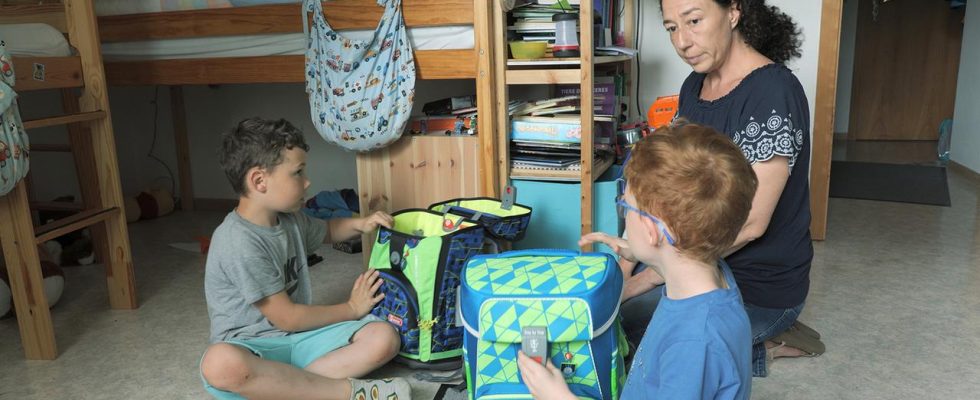If one parent does not pay maintenance, the state takes over with a maintenance advance. He actually wants to collect it again – but in four fifths of the cases that doesn’t work.
Steffi and her two sons stand on the balcony of a rehabilitation clinic on the island of Fehmarn and watch the seagulls flying by screaming. Steffi is a single parent and exhausted. In the mother-child treatment she should recharge her batteries for her everyday life.
When Steffi’s partner left her a few years ago, she was left on her own with two small children from one day to the next. Her financial hardship began with the separation.
Because the children’s father does not pay maintenance, the state steps in – with the maintenance advance. The state advances money to single parents, which it then collects from the non-paying parent – actually. In fact, last year the state only received 19 percent of the advance paid back.
By the end of 2022, the public sector was left with around 4.5 billion euros in outstanding claims. This sum is likely to have increased further since then. However, the responsible family ministry was unable to provide more current figures upon request.
Why doesn’t the state get the money back?
How can it be that in times of austerity and increasing battles over the distribution of public money, the state is missing out on billions in repayments for maintenance advances? If you don’t pay your fine for illegal parking, the bailiff will quickly be at your door. On the other hand, parents who are obliged to pay maintenance, fathers in a good 90 percent of cases, often get away with it.
One problem: Not all fathers and mothers are financially able to look after their children – for example because they don’t earn enough.
Almost a third do not pay
But what about those who are not insolvent but unwilling to pay? According to current figures from the Family Ministry, 50.9 percent would be able to pay the money back.
But the authorities are far from this proportion. This is shown by looking at the official recourse rate, i.e. the proportion of repayments. This has tended to increase in recent years, but fell slightly in 2023. There is a huge disproportion between what the Ministry of Family Affairs says would be possible in terms of repayments and what is actually achieved.
There is room for improvement Recourse rates
“The municipalities would have access to a pot of money, but are not in a position to collect the claims,” says Thomas Seitz of the Nuremberg-based legal and tax consulting firm Roedl & Partner. According to its own information, the law firm has so far supported around 25 municipalities in Germany in increasing their return rates. An increase of up to ten percent was achieved.
The key is to keep an eye on the cases in the long term through digitization and automation so that they do not disappear into the basement archives of the offices. An example: Anyone who currently receives citizen’s benefit and is therefore not obliged to pay maintenance will often not be prosecuted even if they have a job again, says Seitz. In any case, there is still “room for improvement”.
How much room for improvement there is when collecting maintenance also depends on the federal state. The recourse rates are particularly low in the city states of Hamburg (12 percent) and Bremen (11 percent). The best places are Bavaria, Baden-Württemberg (23 percent each) and Rhineland-Palatinate (22 percent).
More children benefit from this Maintenance advance
In recent years, the number of children and young people supported has almost doubled. Since 2017, children of single parents have no longer been financially supported until their 12th birthday, but until their 18th birthday. In autumn 2023 there were a good 830,000.
Two of them are the sons of the single parent Steffi. They now go to school. Steffi saved for several years for the school bag, the boys’ pride and joy. The father of the two is still missing. And the state remains stuck with its costs.
This topic is also discussed in the WDR documentary “Single parents and left alone”.

